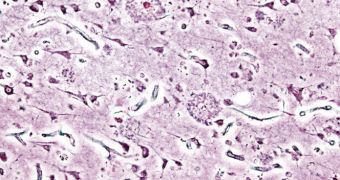In a new scientific study, experts argue that walking may be one of the most efficient method of reducing signs of cognitive decline in seniors exhibiting symptoms related to forms of dementia such as mild cognitive impairment (MCI) and Alzheimer’s disease.
The work, presented on November 29 at the annual meeting of the Radiological Society of North America (RSNA), provides people at risk with a basic method of delaying the onset of symptoms.
This is tremendously important considering that Alzheimer's is a form of dementia that is both irreversible and progressive. Its outcome is inevitable, but its evolution can be considerably delayed.
It affects mostly seniors, and already elicits a huge cost on the healthcare system of all developed nations. In the future, as the population of these states will get older, the costs will soar.
Official statistics from the US National Institute on Aging (NIA) show that between 2.4 and 5.1 million US citizens already have the condition. The numbers are expected to soar considerably in the next few decades.
This is one of the main reason why authorities and experts are currently investing so much time and money into developing simple, efficient solutions against the condition.
“We found that walking five miles per week protects the brain structure over 10 years in people with Alzheimer’s and MCI, especially in areas of the brain’s key memory and learning centers,” explains Cyrus Raji, PhD.
“We also found that these people had a slower decline in memory loss over five years,” adds the team member, who is based at the University of Pittsburgh in Pennsylvania Department of Radiology.
He explains that MCI is a disorder in which people exhibit cognitive and memory problems to a degree higher than normal for old people, but less than in Alzheimer's disease. The bad part is that about 50 percent of MCI patients go on to develop full-blown dementia.
“Because a cure for Alzheimer’s is not yet a reality, we hope to find ways of alleviating disease progression or symptoms in people who are already cognitively impaired,” explains Dr. Raji.
“Alzheimer’s is a devastating illness, and unfortunately, walking is not a cure. But walking can improve your brain’s resistance to the disease and reduce memory loss over time,” he adds.
“Volume is a vital sign for the brain. When it decreases, that means brain cells are dying. But when it remains higher, brain health is being maintained,” the expert adds, quoted by Science Blog.
It would ultimately appear that physical activity is tied to the overall volume of the brain. The more sport people do, the more brain volume they keep, which makes it more difficult for dementia to set in.

 14 DAY TRIAL //
14 DAY TRIAL //